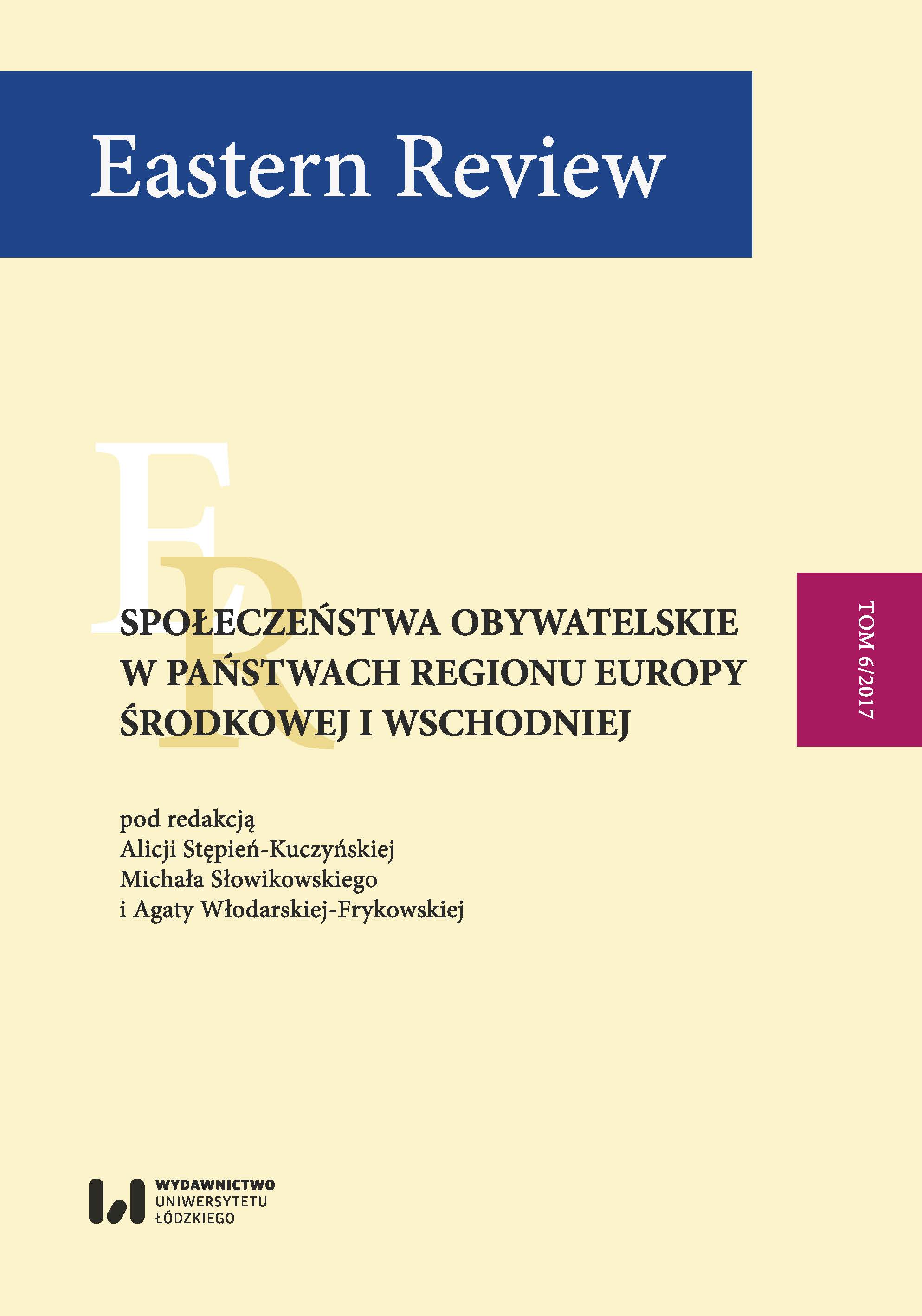Состоятельная территориальная община по-украински: теоретическая модель и практика создания
Capable territorial communities in Ukrainian style: Theoretical model and creation practice
Author(s): Serhy ShvydyukSubject(s): Civil Society
Published by: Wydawnictwo Uniwersytetu Łódzkiego
Keywords: decentralization; local self-government reform; capable territorial community; Ukraine; decentralizacja; reforma samorządu lokalnego; sprawna wspólnota terytorialna; Ukraina
Summary/Abstract: The article considers the issues of decentralization, implemented in Ukraine after 2014, and the reforms of local self-government and territorial authority organization in Ukraine as the first stage of the administrative reform. The goal of this stage is creation of capable territorial communities as the basis for the fully functional local self-government. A capable territorial community is a voluntary association of territorial communities of villages (towns, settlements), which is be able to provide the proper level of services, particularly in the fields of education, culture, health protection, social services, housing and communal services, independently or through appropriate local government, in view of human resources, financial provision and development of the infrastructure of the respective administrative-territorial unit. The author considers the intermediate results of the process of association of territorial communities and observes the improvement of financial and resource opportunities in the connected communities. At the same time, he focuses on a number of objective and subjective factors affecting the reforms rate. Objective factors include the lack of legislative regulation of new institutions and relations arising in the process of change. Subjective factors are the lack of political will on the part of decision makers, primarily among the members of Parliament, as well as opposition from local political and administrative elites. Another important factor is the disinclination of the communities to unite or a substantial difference of approach to association between state authorities and communities. Identification and analysis of such factors are important for prognostication and preventing delays in the territorial communities association process, as well as for the implementation of the entire reform. // Artykuł poświęcony jest problemom decentralizacji, dokonującej się na Ukrainie po roku 2014. Analizie poddany został pierwszy etap reformy administracyjno-terytorialnej – reforma samorządu lokalnego i terytorialnej organizacji władz. Na tym etapie tworzone są podstawy pod budowę funkcjonowania pełnoprawnego samorządu lokalnego – sprawnej wspólnoty lokalnej. Pod pojęciem tym rozumie się wspólnoty terytorialne siół (osiedli i miast), które w rezultacie dobrowolnego łączenia się są zdolne samodzielnie lub za pośrednictwem odpowiednich organów jednostek samorządu lokalnego zapewnić członkom wspólnoty odpowiedni poziom usług w zakresie: edukacji, kultury, ochrony zdrowia, pomocy społecznej, gospodarki komunalnej, z uwzględnieniem zasobów kadrowych, finansów, rozwoju infrastruktury w jednostkach administracyjno-terytorialnych. Autor rozwa¬ża dotychczasowe osiągnięcia w zakresie łączenia wspólnot terytorialnych i odnotowuje wzmocnienie potencjału finansowego i zasobów w połączonych wspólnotach. Jednocześnie autor zwraca uwagę na szereg obiektywnych i subiektywnych czynników wpływających na tempo reformy. Do czynników obiektywnych zalicza niedoskonałość uregulowań prawnych funkcjonowania nowych instytucji i stosunków, pojawiających się w procesie zmian. Czynniki subiektywne to przede wszystkim brak woli politycznej po stronie decydentów państwowych, w pierwszej kolejności deputowanych Rady Najwyższej, ale także sprzeciw ze strony elit lokalnych politycznych i administracyjnych. Negatywny wpływ na proces łączenia wspólnot ma stosunek samych wspólnot do proponowanych zmian, a także sprzeczność poglądów w tej sprawie pomiędzy wspólnotami a organami władzy państwowej.
Journal: Eastern Review
- Issue Year: 2017
- Issue No: 6
- Page Range: 117-128
- Page Count: 12
- Language: Russian

